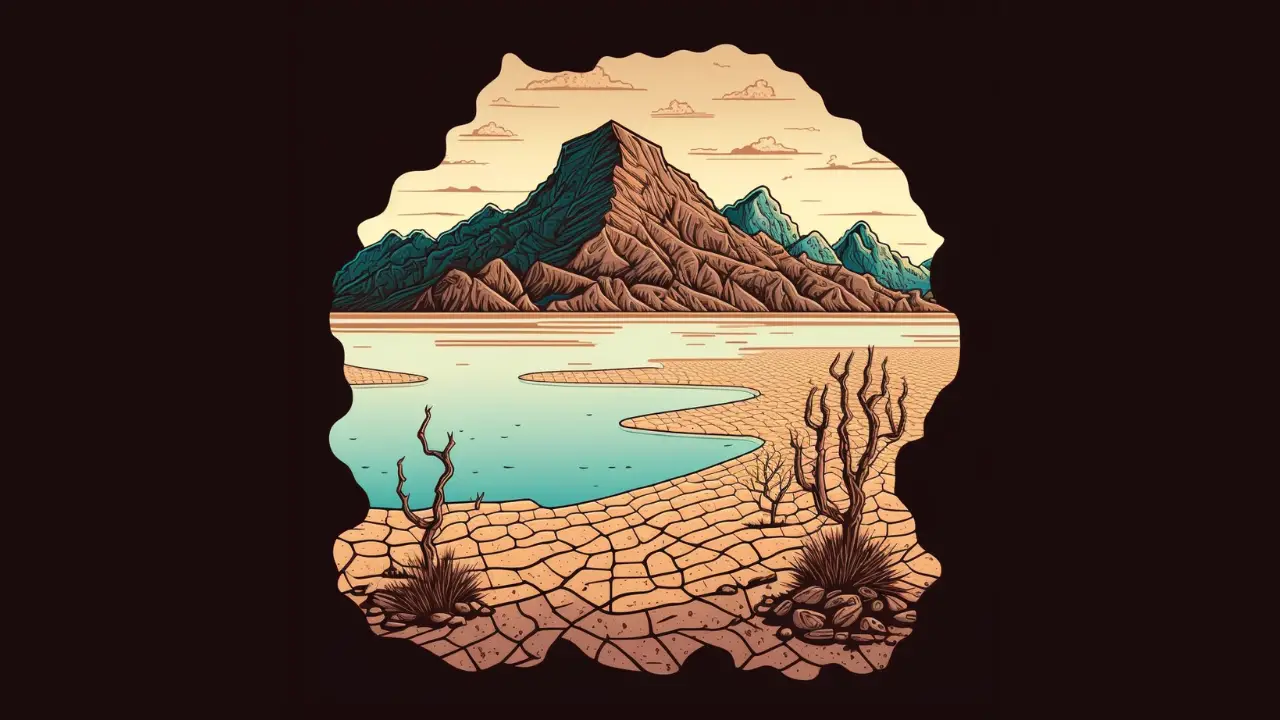Quick Summary:
In the United States, rainwater collection laws vary by state. Some states like Colorado, Utah, and Texas have specific laws and regulations that allow the collection of rainwater for household and agricultural use and even incentivize it. While other states like Oregon, Washington, and California, have more general water rights laws that apply to rainwater collection, but they also have specific regulations, such as permit requirements. It’s important to check the laws of the state you live in, as well as any local regulations, as laws and regulations can change over time.
Below I have listed each other state and its respective laws regarding collecting rainwater. When you keep reading you’ll also see common questions asked about collecting rainwater and I try my best to answer those with stories, examples, and links to resources. Enjoy.
Example States Laws and Regulations Regarding Rainwater Collection
The laws and regulations regarding rainwater collection vary by state, so it would be best to check the laws of the state where you live. However, I can provide examples of the laws in some states:
- Colorado: rainwater collection is legal for both household and agricultural use, and is even incentivized by the state. Maria could collect rainwater from her roof and use it for irrigation or other non-potable uses.
- Utah: rainwater collection is legal for both household and agricultural use. Maria would need to register her rainwater collection system with the state, but she would not need a permit.
- Texas: rainwater collection is legal for both household and agricultural use. Maria would not need a permit to collect rainwater from her roof, but she would need to follow certain guidelines and regulations to ensure that the water is safe to use.
It’s important to note that these are just examples, and the laws of your state may differ from the examples provided. It’s always advisable to check with the relevant authorities in her area before starting to collect rainwater, as the laws and regulations can change over time.
Why Would States Outlaw Collecting Rainwater?

There are several reasons why states may outlaw collecting rainwater, but it largely depends on the specific laws and regulations of each state. Some possible reasons include:
- Water rights: In some states, collecting rainwater may be considered to be a violation of water rights laws, which are laws that govern the use, allocation, and ownership of water resources.
- Rainwater collection as a diversion: In some states, collecting rainwater may be considered as a diversion, the act of redirecting water from its natural course. The state may have laws that prohibit the diversion of water without a permit or specific legal right to do so.
- Water scarcity: In some states, where water is scarce, the state may have laws to prevent the collection of rainwater to ensure that there is enough water for all uses, including municipal, agricultural and industrial.
- Public health concerns: In some states, collecting rainwater may be considered a public health concern, as the water may not be safe for human consumption or other uses without proper treatment. The state may have laws that regulate the quality of water that is collected for human use.
- Stormwater management: In some states, collecting rainwater may be considered as a way to manage stormwater. The state may have laws that regulate the amount of water that can be collected, in order to prevent flooding, erosion, and other problems associated with stormwater runoff.
It’s important to note that these are just examples and that the laws regarding rainwater collection can vary widely by state. It’s always advisable to check with the relevant authorities in your area to understand the specific laws and regulations related to rainwater collection in your state.
Can I Collect Too Much Rainwater?
The restrictions on the amount of rainwater that can be collected vary by state and also depend on the specific circumstances and intended use of the collected water. In general, there are no federal or state-wide restrictions on the amount of rainwater that can be collected for household and agricultural use. However, some states, cities, or local governments have specific regulations regarding the amount of rainwater that can be collected.

For example, in Colorado, Maria is allowed to collect as much rainwater as she wants as long as it is for non-potable uses. In Utah, there is no specific restriction on the amount of rainwater that can be collected, but Maria would need to register her rainwater collection system with the state.
In Texas, Maria is allowed to collect as much rainwater as she wants as long as it is for non-potable uses, but she would need to ensure that her collection system is designed to prevent water from overflowing and causing damage to neighboring properties.
In Oregon, Washington, and California, there may be restrictions on the amount of rainwater that can be collected, but it would depend on the specific regulations of the local government where Maria lives.
It’s important for Maria to check with the relevant authorities in her area before starting to collect rainwater, as restrictions on the amount of rainwater that can be collected can change over time, and also depend on the specific circumstances of her collection system.
Best Practices For Collecting Rainwater
Here are some best practices for collecting rainwater:
- Check with local authorities: Before starting to collect rainwater, check with local authorities to ensure that it is legal and to find out about any specific regulations or permit requirements in your area.
- Plan your collection system: Determine the best location to collect rainwater from your roof or other surfaces and determine the size of the collection system you will need.
- Use food-grade or UV-protected materials: Use food-grade or UV-protected materials for your collection system to ensure that the water is safe to use.
- Keep your collection system clean: Regularly clean and maintain your collection system to prevent the buildup of debris or bacteria that could contaminate the water.
- Use a first flush diverter: A first flush diverter helps to prevent pollutants on the roof or other surfaces from entering the collection system.
- Use a filter: Use a filter to remove debris, leaves, and other contaminants from the water before it enters the collection system.
- Use a water level indicator: Use a water level indicator to monitor the water level in your collection system and to prevent overflow.
- Use an overflow drain: Use an overflow drain to prevent water from overflowing and causing damage to neighboring properties.
- Use a water pump: Use a water pump to move water from the collection system to where it will be used.
- Use a UV sterilizer: Use a UV sterilizer to kill any bacteria or other microorganisms that may be present in the water.
When To Seek An Attorney
It’s a good idea to seek an attorney in this regard when:
- You’re unsure about the legality of collecting rainwater in your state or the local area and want to understand the specific laws and regulations related to rainwater collection in your state.
- You’ve been contacted by a state or local authority about a possible violation of the laws or regulations related to rainwater collection.
- You’ve been issued a citation or a fine for collecting rainwater illegally and want to contest it.
- You’re planning to install a rainwater collection system and want to ensure that it complies with the laws and regulations related to rainwater collection in your state.
- You’ve been told to remove your rainwater collection system and want to understand your legal rights and options.
- You’re facing penalties, fines, or imprisonment for collecting rainwater illegally and want to understand your legal rights and options.
It’s also a good idea to consult an attorney if you have any doubts or concerns regarding the legality of collecting rainwater, or if you’re planning to collect rainwater and want to ensure that you’re doing it in compliance with the law.
